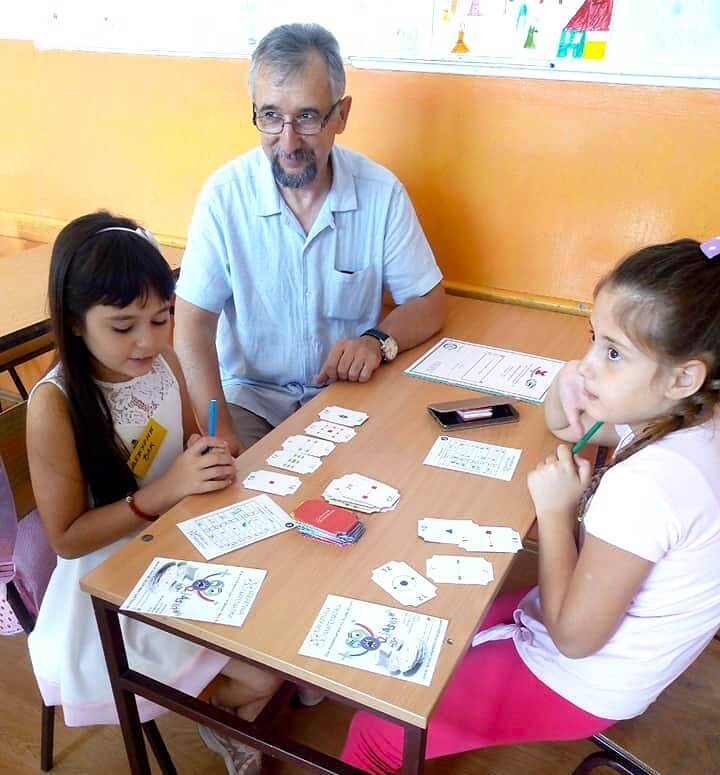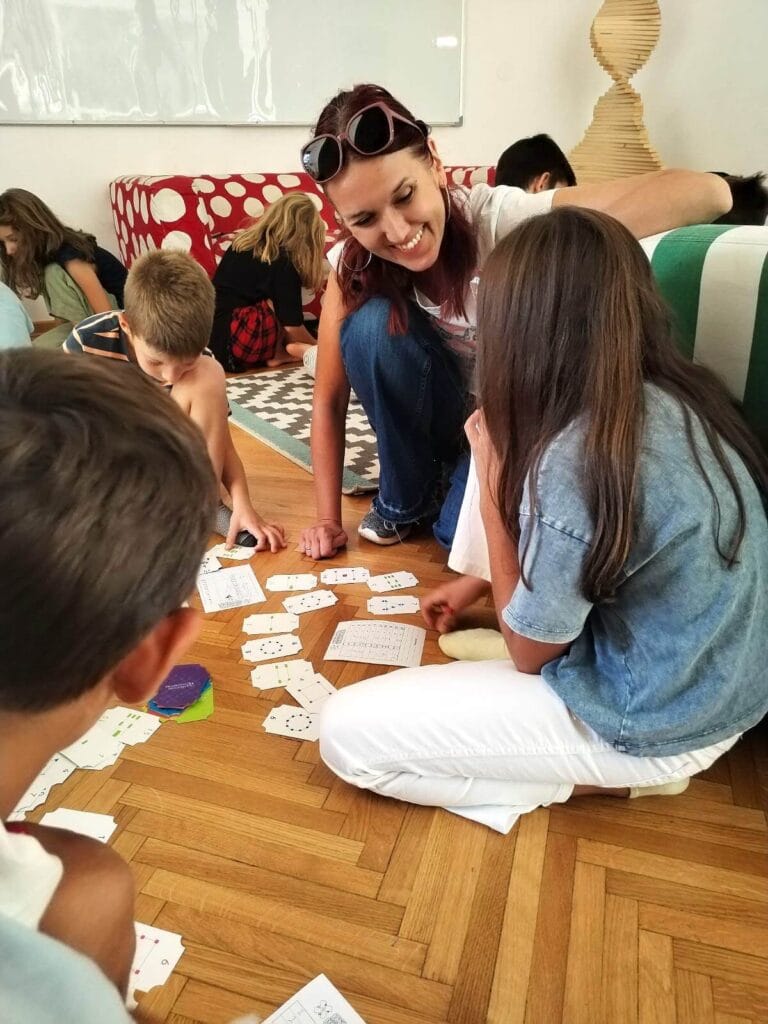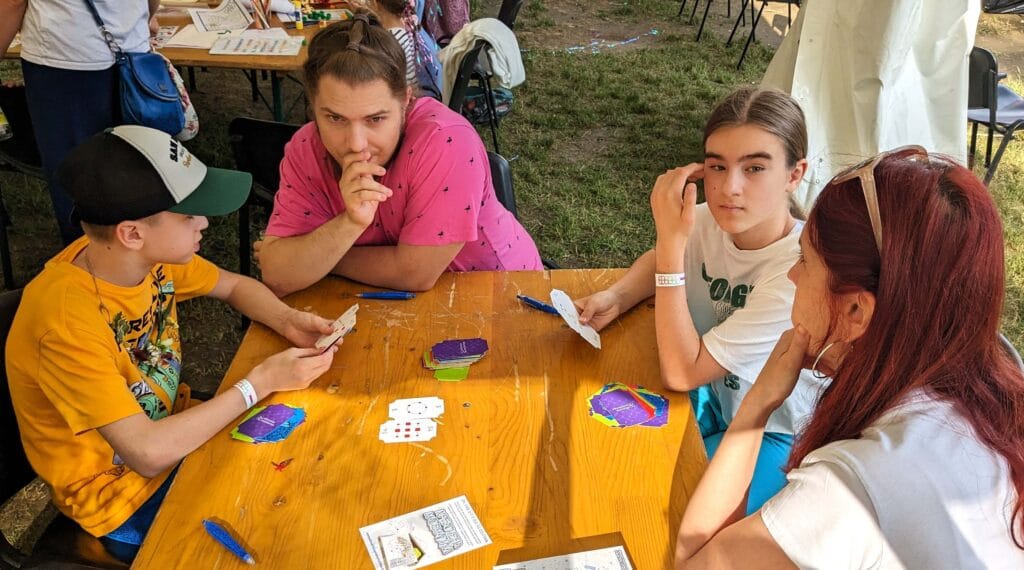Motivation, confidence, and a positive learning experience
Kreativna matematika is an innovative educational game for children, used as a teaching tool in early mathematics education. Unlike traditional methods, knowledge is acquired naturally – through play, which fosters children’s motivation to learn, builds their confidence, and creates a positive learning experience. In this way, children experience mathematics as engaging and achievable, rather than as an obstacle. Through this approach, many important benefits emerge that go beyond mathematical knowledge – offering multiple advantages for children, such as: growth through play:

- Motivation for learning – Starting first grade represents a big change for every child. Until then, play was a natural part of their everyday life – and suddenly, they are expected to sit still, be serious, and keep up with the pace of the school program. It is at that moment that many students begin to feel pressure and lose the natural curiosity they had before starting school. The educational kit helps ease this transition and keeps their motivation for learning alive. Through play, movement, and clear logic, the child feels that learning is not a punishment, but a continuation of play on a new level. In this way, their inner motivation is preserved – children learn because they want to, not because they have to.
- Long-term memory – When a child learns through play, they don’t just memorize by heart; they truly understand what they learn. That is where the strength of the Kreativna matematika educational set lies – through sequences, movement, and visual cues, the child connects numbers and relationships logically rather than mechanically. Thanks to this, information is stored in long-term memory, as it is linked to experience, emotion, and understanding. When a child understands why something works, that knowledge is not easily forgotten – they can apply it much later, in more complex tasks and new contexts. Kreativna matematika therefore does not create just “temporary knowledge,” but strong foundations on which the child can later easily build more complex mathematical skills.
- Development of functional literacy – Functional literacy means the ability to apply knowledge in everyday situations, not just to memorize it. In this way, the child not only understands mathematical concepts but also knows how to use them – to recognize patterns, solve problems, draw conclusions, and apply knowledge in new contexts. This means that the child does not “learn just to answer a question,” but develops mathematical thinking and skills that will be useful beyond the classroom – in everyday life, future education, and work. Through this approach, the foundation of functional literacy is built – one of the most important goals of modern education and a key condition for success in further learning.
Children not only learn mathematical concepts but actively apply them in the context of play, developing logical thinking and creative problem-solving skills.

The educational and social component of play
One of the key values of the game Kreativna matematika is its inclusiveness and focus on collaborative learning. The rules are designed so that:
- They do not promote competitiveness,
- they encourage cooperation, understanding, and empathy,
- and they ensure equal value of all cards, since the winning criterion is revealed only at the end of the game.

This approach eliminates pressure and creates space for creative expression and teamwork.
Additional benefits for children’s development
In addition to its educational and developmental components, the game Kreativna matematika offers a range of additional benefits:
| ✅BENEFIT | DESCRIPTION |
|---|---|
| Verbal and nonverbal communication | Children explain strategies and exchange ideas. |
| Strengthening self-confidence | Successful problem-solving fosters a sense of achievement. |
| A positive attitude toward mathematics | Math is experienced as fun and approachable. |
| Support for inclusive education | The game easily adapts to different abilities |
| Development of flexible thinking | Children learn that there is more than one way to reach a solution. |
Looking for a game that combines fun and learning?
👉 Discover Kreativna matematika – an educational game that develops logic, focus, and a love for mathematics!
